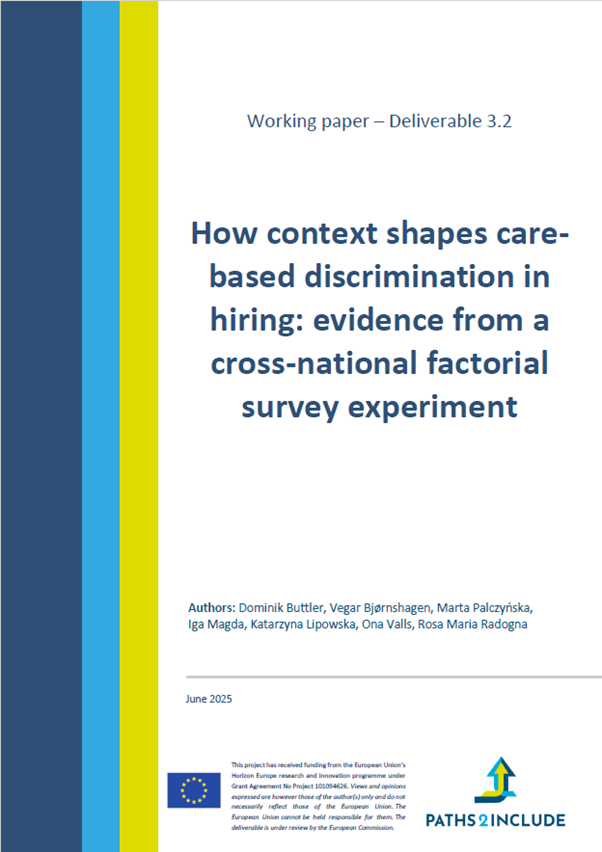This study examines the organizational determinants of hiring discrimination based on care responsibilities using data from a harmonized cross-national factorial survey experiment carried out in Germany, Norway, Poland, and Romania. It focuses on how discrimination based on care responsibilities is shaped by partnership status, and how this interplay is moderated by concrete organizational conditions. By extending the analysis beyond individual-level biases to include organizational opportunity structures and job demands, this research highlights how discrimination in hiring can be reduced through organizational-level measures. The results indicate that addressing this
form of discrimination requires more than attitudinal change, and a rethinking of how work is organized and how and which diversity initiatives are implemented.
The working paper is organised as follows. In Section 2, we present the preregistered hypotheses, the theory and prior work from which they are derived. In Section 3, we describe our data, the factorial survey experiment and the survey context. Finally, we present descriptive statistics. In Section 4 we present our empirical strategy. Then, we present our results and robustness checks in Sections 5 and 6 and conclude by discussing the implications of the findings in Section 7.
Authors: Dominik Buttler, Vegar Bjørnshagen, Marta Palczyńska, Iga Magda, Katarzyna Lipowska, Ona Valls, Rosa Maria Radogna

